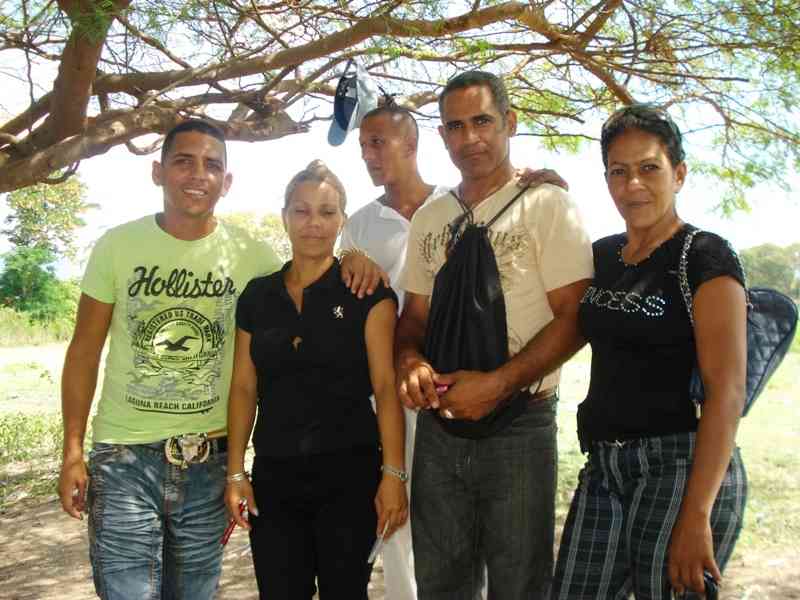Jehova is among those who help me. – Psalm 118:7
On Saturday, July 24, I received a letter from the Postal and Shipping Customs Center, belonging to the General Customs of the Cuban Republic. With that letter, I was notified that a process was underway to confiscate a package from the US that had been shipped to me.
The documents that I received were not the original ones, they are copies on carbon paper. Apparently, the objects which were confiscated are divided into three groups: 1) Digital equipment and media, 2) Office materials, and 3) Hygiene and Medicinal products.
In the section titled “Report”, they specified the causes for the confiscations on behalf of the Customs Department: “Upon carrying out the physical inspection, we found certain articles that go against the general interests of the nation, which is taken care of through confiscation according to the established and current law”. The Resolution of the confiscation is number 1130. The number is written with dark ink so that it can be legible. The Cuban system guides itself by resolutions that leave individuals defenseless.
The Resolution number 1187 also arrived written for Maida Martinez Perez, a resident of April 9th Street and Calzada de Luyano and Agramonte, of the 10th of October Municipality in the city of Havana. This lady is the mother of Joisy Garcia Martinez, a member of the Liberal Party of Cuba, who usually receives her mail in that address. The confiscation of the package under the name of the mother suggests that it seems as if they are doing so because of the data from the issuer in the US.
The government has found itself forced to release the last 53 political prisoners and prisoners of conscience of the Black Spring of 2003. It was made possible thanks to the internal and external demands made. Such experience should serve to unite us in a coordinated fashion, both those of us in the island and in the diaspora, together with international support, to shift our efforts to repealing the laws that make our nation an island prison. In that same manner, we must demand that they sign and abide by the Covenants of the United Nations.
With much gratitude for those who support us, these suggestions are for you:
On our part, we request that Dr. Wilfredo Vallin, president of the Independent Judiciary Association of Cuba, effect this demand with his organization.
Translated by Raul G.
August 3, 2010

 Gerardo, a 52-year-old economist, does not think himself as either a bore or a zombie. However, his wife thinks he is a first-class lunatic. “He has spent his vacation months with a pair of binoculars looking out to Havana bay while taking note of all the ships that enter through this area on his notebook,” his wife says in a very calm voice.
Gerardo, a 52-year-old economist, does not think himself as either a bore or a zombie. However, his wife thinks he is a first-class lunatic. “He has spent his vacation months with a pair of binoculars looking out to Havana bay while taking note of all the ships that enter through this area on his notebook,” his wife says in a very calm voice.

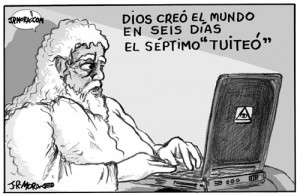
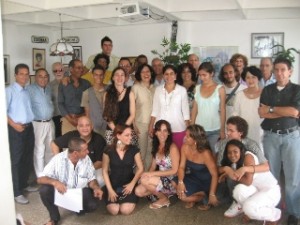 Last month, Yoani Sanchez, the creator of Generation Y, invited some of her friends to contribute to the diffusion of micro-blogging through the group known as “The First Tweet-up on the Island.” In regards to such a meeting, I asked when and where.
Last month, Yoani Sanchez, the creator of Generation Y, invited some of her friends to contribute to the diffusion of micro-blogging through the group known as “The First Tweet-up on the Island.” In regards to such a meeting, I asked when and where.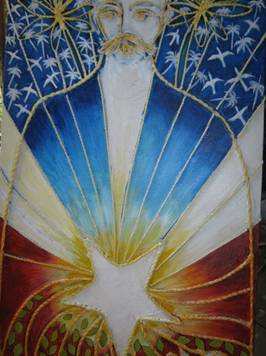
 Amidst Cuban flags, famous boleros, and white flowers, thousands of exiles and hundreds of Latin Americans bid farewell to Olga Guillot on Monday, July 12th. On Friday Guillot checked in to the Mount Sinai Hospital in Miami, that city where she lived in and occasionally performed ever since the 60’s, although Venezuela and Mexico were her first sanctuaries after leaving Cuba in 1961, while her voice still filled all the radios of the country.
Amidst Cuban flags, famous boleros, and white flowers, thousands of exiles and hundreds of Latin Americans bid farewell to Olga Guillot on Monday, July 12th. On Friday Guillot checked in to the Mount Sinai Hospital in Miami, that city where she lived in and occasionally performed ever since the 60’s, although Venezuela and Mexico were her first sanctuaries after leaving Cuba in 1961, while her voice still filled all the radios of the country. The prisoner Luis Alberto Rodriguez Camejo declared himself on hunger strike this past July 20th in the detachment known as Pending Trial No. 6, in cell 14 of the provincial prison of Canaletas in Ciego de Avila. Rodriguez Camejo is 43 years old and is a resident of 1st street on No. 75 South, between Honorato del Castillo and Paseo (in the central city neighborhood of Ciego de Avila). He finds himself rejecting any foods as a form of protest against his alleged conviction of armed robbery in a plastic arts warehouse. The actual thief, however, confessed to the crime and yet he is out in the street under a fee and owes 6 years of conditional freedom. He also has 9 other armed robberies under his belt that can be confirmed. It seems that the thief was released from accusations because his skin color is white while Rodirguez Camejo’s is black.
The prisoner Luis Alberto Rodriguez Camejo declared himself on hunger strike this past July 20th in the detachment known as Pending Trial No. 6, in cell 14 of the provincial prison of Canaletas in Ciego de Avila. Rodriguez Camejo is 43 years old and is a resident of 1st street on No. 75 South, between Honorato del Castillo and Paseo (in the central city neighborhood of Ciego de Avila). He finds himself rejecting any foods as a form of protest against his alleged conviction of armed robbery in a plastic arts warehouse. The actual thief, however, confessed to the crime and yet he is out in the street under a fee and owes 6 years of conditional freedom. He also has 9 other armed robberies under his belt that can be confirmed. It seems that the thief was released from accusations because his skin color is white while Rodirguez Camejo’s is black.

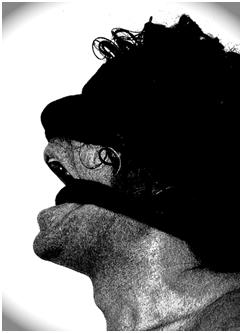 Freedom of expression is internationally recognized in the Declaration of Human Rights (Article 19). These prerogatives include being safe from oppression due to expressing an opinion, conducting research and receiving and spreading information, regardless of borders, by any means.
Freedom of expression is internationally recognized in the Declaration of Human Rights (Article 19). These prerogatives include being safe from oppression due to expressing an opinion, conducting research and receiving and spreading information, regardless of borders, by any means.